Padmalatha Ravi’s film Soul Run looks at why and how people challenge themselves to take up ultra runs, which extend into several days and kilometres at a stretch
- Nanasu
- In the news
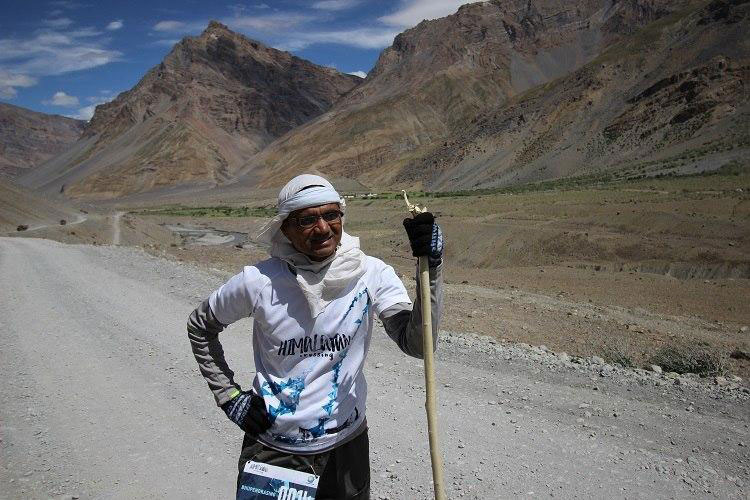
What could possibly possess a man or woman to run 330 kilometers at an altitude of 4,500 meters above sea level? Or to run 220 kilometers in temperatures of 44 degrees Celsius? It was this question, more than any other, that drove Bengaluru film-maker, Padmalatha Ravi, to make “Soul Run”, a film on Ultra marathoners in India, runners who participate in events that are longer than traditional marathons of about 42km (often over 100km).
Padmalatha is a long-distance runner herself, having run a number of 10-kilometer races and half marathons in the past few years. "I still have difficulty explaining why I do that, and those are still reasonable numbers," she says. "So what drives them? And what are these limits they are trying to push? That's what the film is trying to find out."
The film follows runners across three runs – the Himalayan Crossing, the Salomon Bhatti Lakes Ultra near Delhi, and the Run of Kutch.
What makes that question so fascinating, says Padmalatha, is that these runners are not professional athletes. “They’re just regular guys – doctors, software engineers, students… Interestingly, Surat has a lot of runners and a lot of doctors among them. I asked them if they didn’t get enough excitement doing surgery, and their response was ‘Kuch to Karna hai’,” she laughs.
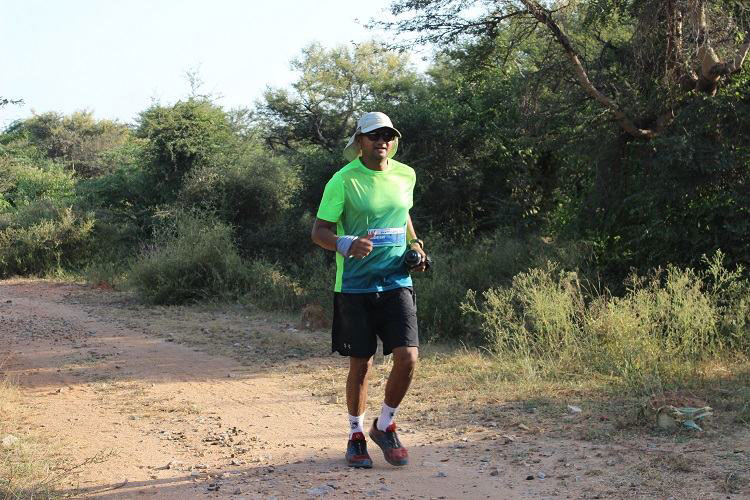
It is this humanness of the runners that emerges amidst their unbelievable feats and gives the film its drama, explains Padmalatha: “You’ll be surprised how much drama there is. Even I was quite surprised because you would wonder what dramatic moments are there in people running for three days.”
But, she says, there are moments like when Bhupinder Singh, one of the runners she followed in the Himalayan Crossing Ultra, began hallucinating after two days without sleep and due to lack of oxygen. “He’s seeing things that aren’t there, and despite all that the man is still continuing to walk,” she says.
Then there was another young runner, who hurt his knee during his 168 km run and limped across a distance of 30km to finish.
There are also moments that have nothing to do with endurance and ability. Padmalatha speaks of one such instance, “There was this beautiful moment with Bhupinder where this stray dog just decided to run with him for 30-40 km.”
And then there’s the terrain and landscape itself which makes for interesting challenges for the runners, as it did for Padmalatha to shoot the film. “Kutch was impossible to shoot in because it was all just white sand. During the day the only point of reference we had were the markers the organizers had put up. Otherwise, we didn’t know where to point the camera,” she says, adding, “But once we got it right, it was absolutely stunning.”
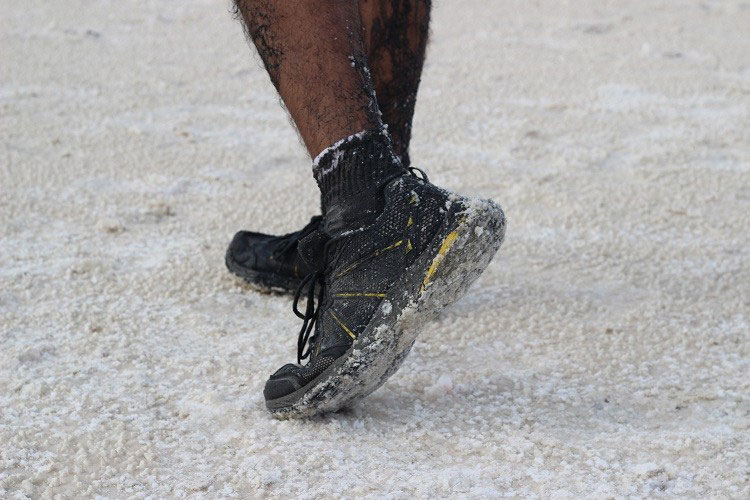
The Himalayas presented a different challenge – with a profusion of vistas that sometimes threatened to take attention away from the runner. Since the race was being run in warmer weather, the mountains were not at their most dramatic, as there was no snow, explains Padmalatha. “It was all brown. But then there’s brown and then there’s Himalayan brown.”
What struck her more was the absolute absence of people. In one section of the race between the base camp at Kaza and the highest village in Asia, Komic, she says, she was camped at one corner of the trail for nearly eight hours: “In those eight hours, the only humans I saw were the runners who would pass by one at a time every hour or so. That was what the runners were battling, just the vastness of the landscape, besides the high altitude and lack of oxygen.”
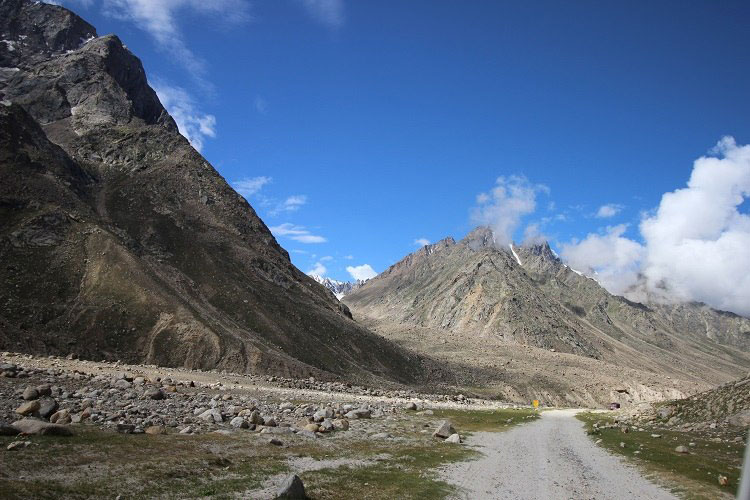
As for answers to her fundamental question – why do this? – the answers vary with each runner, although there was one common point. “The title of the film came from one runner Usha, who is a mother of two teenagers. She said, ‘This is my me-time, this is where I connect to my soul’. This idea of connecting to the soul came up with every runner.”
What that self-discovery does, says Padmalatha, is make these runners more compassionate, considerate, grounded and wanting to connect to people. “As corny as it sounds, the longer the distances people run, the nicer they are. And that fascinates me,” she says.
She thinks it comes down to the humbling nature of Ultra-running. “That’s the beauty of Ultra-running. None of these people minds a DNF (did not finish). Here the attempting is what matters. No matter what distance they planned, they all told me, ‘We are just attempting it.’ If you finish that’s great, but otherwise, it’s absolutely fine. You’ve got to where you wanted. You’ve come as far as your training could get you. There’s a humility that comes with the entire process.”
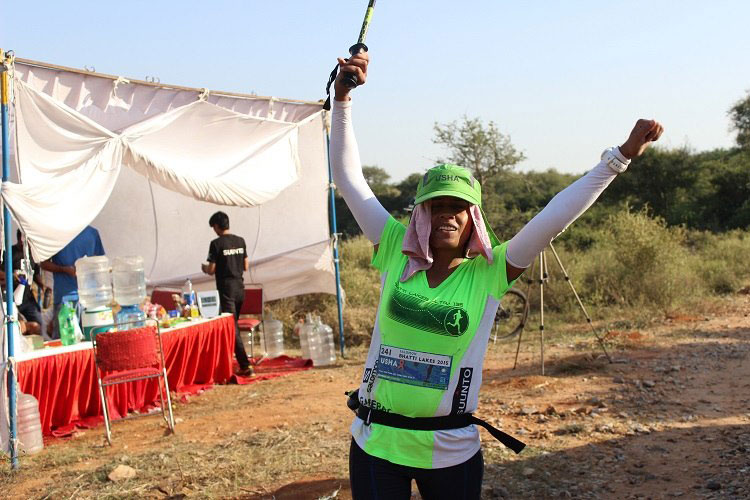
‘Soul Run’ is now on the editing table, and Padmalatha is hoping to release the film by November on the festival circuit. Meanwhile, she’s trying to raise funds to support the completion of the post-production of the film as well as to make a donation to the Globeracers’ Athletes’ Fund, which helps deserving runners participate in events around the world. The fundraising campaign, which is running for five more days, can be accessed here.







